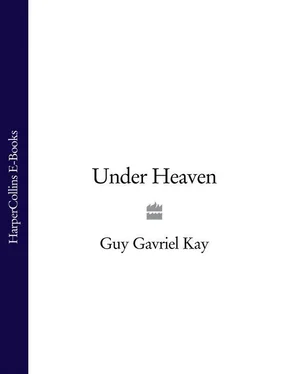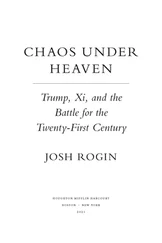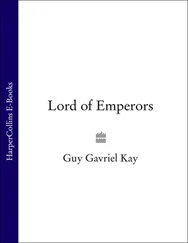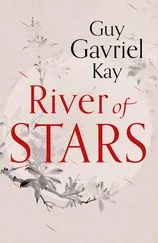1 ...6 7 8 10 11 12 ...32 It was soon enough done, the sun still high, just starting west. Summer’s approach made the run down to the lake easier in obvious ways. Bytsan lingered long enough for a cup of wine (warmed in the Kitan fashion) with Shen Tai, then bade him a brisk farewell. The soldiers were already restless. The other man was still distracted, uneasy. It showed, behind the eternal mask of courtesy.
Bytsan could hardly blame him.
Two hundred and fifty horses, the White Jade Princess had decreed. The sort of overwrought conceit only someone living in a palace all her life could devise. The king had approved it, however.
It was never wise, Bytsan had decided on his way here from the fort, to underestimate the influence of women at a court.
He’d considered saying that, too, over the cup of wine, but had elected not to.
There would be one last supply trip in a month’s time, then life would change for both of them. They might never see each other again. Probably would not. Better not to do anything so foolish as confide in the other man, or acknowledge more than curiosity and a rationed measure of respect.
The cart was lighter on the way back, of course, the bullock quicker heading home. So were the soldiers, putting the lake and the dead behind them.
Three of his men started a song as they left the meadow and began to wind their way up. Bytsan paused in the afternoon light at the switchback where he always did, and looked down. You might call Kuala Nor beautiful in late spring—if you knew nothing about it.
His gaze swept across the blue water to the nesting birds—an absurd number of them. You could fire an arrow in the air over that way and kill three with one shot. If the arrow had room to fall. He allowed himself a smile. He was glad to be leaving, too, no denying it.
He looked across the meadow bowl, north towards the far, framing mountains, range beyond range. The tale of his people was that blue-faced demons, gigantic and malevolent, had dwelled in those distant peaks from the beginning of the world and had only been barred from the Tagur plateau by the gods, who had thrown up other mountains against them, wrapped in magic. The range they were re-entering now, where their small fortress sat, was one of these.
The gods themselves, dazzling and violent, lived much farther south, beyond Rygyal, above the transcendent peaks that touched the foothills of heaven, and no man had ever climbed them.
Bytsan’s gaze fell upon the burial mounds across the lake, on the far side of the meadow. They lay against the pine woods, west of the Kitan’s cabin, three long rows of them now, two years’ worth of bonegraves in hard ground.
Shen Tai was digging already, he saw, working beyond the last of them in the third row. He hadn’t waited for the Tagurans to leave the meadow. Bytsan watched him, small in the distance: bend and shovel, bend and shovel.
He looked at the cabin set against that same northern slope, saw the pen they’d built for the two goats, the freshly stacked firewood against one wall. He finished his sweep by turning east, to the valley through which this strange, solitary Kitan had come to Kuala Nor, and along which he would return.
“Something’s moving there,” Gnam said beside him, looking the same way. He pointed. Bytsan stared, narrowing his eyes, and then he saw it, too.
He’d gone back to digging the pit he’d started two days ago, end of the third row in from the trees, because that was what he did here. And because he felt that if he didn’t keep himself moving, working to exhaustion today, the chaos of his thoughts—almost feverish, after so long a quiet time—would overwhelm him.
There was always the wine Bytsan had brought, another access, like a crooked, lamplit laneway in the North District of Xinan, to the blurred borders of oblivion. The wine would be there at day’s end, waiting. No one else was coming to drink it.
Or so he’d thought, carrying his shovel to work, but the world today was simply not fitting itself to a steady two-year routine.
Standing up, stretching his back, and removing the maligned hat to mop at his forehead, Tai saw figures coming from the east over the tall green grass.
They were already out of the canyon, in the open on the meadow. That meant they had to have been visible for some time, he just hadn’t noticed. Why should he notice? Why even look? No one came here but the two sets of troops from the forts, full moon, new moon.
There were two of them, he saw, on small horses, a third horse carrying their gear behind. They moved slowly, not hurrying. Perhaps tired. The sun was starting west, its light fell upon them, making them vivid in the late-day’s glowing.
It wasn’t time for supplies from Iron Gate. He’d just said farewell to Bytsan and the Taguran soldiers. And when men did arrive, it wasn’t just a pair of them with no cart. And—most certainly—they did not reach the lake in the later part of the day, when they’d have to stay with him overnight or be outside among the dead after dark.
This, clearly, was a day marked for change in his stars.
They were still some distance away, the travellers. Tai stared for another moment, then shouldered his shovel, picked up his quiver and bow—carried against wolves and for shots at a bird for dinner—and started towards his cabin, to be waiting for them there.
A matter of simple courtesy, respect shown visitors to one’s home, wherever it might be in the world, even here beyond borders. He felt his pulse quickening as he walked, beating to meet the world’s pulse, coming back to him.
Chou Yan had expected his friend to be changed, in both appearance and manner, if he was even alive after two years out here. He’d been preparing for terrible tidings, had talked about it with his travelling companion, not that she ever replied.
Then at Iron Gate Pass—that wretched fortress here at the world’s end—they’d told him Tai was still among the living, or had been a little while ago when they’d taken supplies to him by the lake. Yan had immediately drunk several cups of Salmon River wine (he had been carrying it for Tai, more or less) to celebrate.
He hadn’t known, until then.
No one had known. He’d assumed when he left Xinan that he would be journeying ten days or so along the imperial road and then down through civilized country to his friend’s family home with what he had to tell him. It wasn’t so. At the estate near the Wai River, where he’d managed to remain uncharacteristically discreet about his tidings, the third brother, young Shen Chao—the only child still at home—had told him where Tai had gone, two full years ago.
Yan couldn’t believe it at first, and then, thinking about his friend, he did believe it.
Tai had always had something different about him, too many strands in one nature: an uneasy mingling of soldier and scholar, ascetic and drinking companion among the singing girls. Along with a temper. It was no wonder, their friend Xin Lun had once said, that Tai was always going on about the need for balance after too many cups of wine. Lun had joked about how hard keeping one’s balance could be on muddy laneways, weaving home after that many cups.
It was a very long way, where Tai had journeyed. His family had not heard from him since he’d gone. He could be dead. No one could reasonably expect Chou Yan to follow him, beyond the borders of the empire.
Yan had spent two nights among the Shen women and youngest boy, sharing their ancestor rites and meals (very good food, no wine in the house during mourning, alas). He’d slept in a comfortable mosquito-netted bed. He’d poured his own libation over General Shen Gao’s grave, admired his monument and inscription, strolled with young Chao in the orchard and along the stream. He was unhappily trying to decide what to do.
Читать дальше












